讲座题目:The role of the science of urban ecology in creating green, healthy, resilient and liveable cities and towns in the future
主讲人:Mark J. McDonnell 副教授
主持人:林琳
开始时间:2013年10月22日(周二)下午2:00
讲座地址:闵行校区资源与环境科学学院一楼148室
主办单位:资环学院、科技处
报告人简介:
Mark McDonnell is the Director of the Australian Research Centre for Urban Ecology (ARCUE) which is affiliated with the Royal Botanic Gardens Melbourne and the University of Melbourne. His research interests range widely, and include the processes driving vegetation and ecosystem change, landscape ecology, the structure and function of urban ecosystems, and the conservation and management of urban biodiversity. In all these areas, he is concerned about bringing high-quality ecological data and the understanding of basic ecological processes to bear on problems of conservation and management of urban ecosystems. He has conducted pioneering research on the study of urban-rural gradients and the comparative ecology of cities and towns around the globe. An outcome of his early research on forests in the New York Metropolitan area was the landmark 1993 publication, co-edited with S.T.A. Pickett, entitled ‘Humans as Components of Ecosystems’. Mark has authored or co-authored over 150 scientific papers, reviews, book chapters, reports and articles. His most recent co-edited book published by Cambridge University Press in 2009, ‘Ecology of Cities and Towns’, provides an up-to-date assessment of the current state of urban ecology research around the world and identifies the future challenges and opportunities of applying research outcomes to create resilient and liveable cities and towns in the future.
报告简介:
The number and size of cities and towns around the globe are rapidly expanding. There is a tremendous call for information about urban ecosystems in order to address issues related to the conservation of natural resources and the development of sustainable planning and building practices, while also providing a safe and healthy environment for humans. Historically, urban ecosystems have not been the object of study by ecologists and thus there is a crucial lack of knowledge regarding the structure and dynamics of these human dominated systems. The use of a comparative approach provides urban ecologists with the ability to quickly develop a greater understanding of the structure, function and dynamics of urban ecosystems. To effectively elucidate the multiple dimensions of urban ecosystems and create sustainable cities in the future, urban ecologists need to develop comprehensive ecological and sociological knowledge bases for cities with a range of sizes, developmental histories and at local, regional and global scales. Such knowledge bases can provide important generalities or principles about the relationships between the structure, function and dynamics of urban ecosystems. In my presentation I will describe how making these interactions more apparent can progress the study of urban ecology from correlative relationships to the development of a more mechanistic understanding of the structure and function of urban ecosystems. This increased level of understanding is essential for creating green, healthy and resilient cities and towns in the future.




